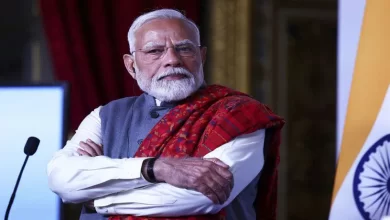Vismaya suicide: Husband found guilty

Thiruvananthapuram: A Kollam court on Monday found a youth guilty of abetting the suicide of his wife Vismaya, a final year Ayurveda medical student, last June.
Kollam Additional Sessions Court Ajudge K.N.Sujith found Kiran Kumar, who is an Assistant Motor Vehicle Inspector, guilty of the various crimes put forward by the prosecution which included abetment of suicide and also tormenting the victim in the name of dowry among other other things.
The quantun of punishment will be announced on Tuesday.
His bail was cancelled after the court found him guilty.
On June 21, 2021, that Vismaya was found hanging at her husband Kiran Kumar’s home in Kollam district.
The reason that surfaced was Kumar was unhappy with the brand new car, along with 1.20 acre of land and 100 sovereigns of gold, he was given as dowry after their marriage last year. He was harassing Vismaya as the Rs 10 lakh car had low mileage and he wanted to sell it and buy a new luxury car.
Kumar, who was an Assistant Motor Vehicle Inspector in the Kerala Motor Vehicles Department, was arrested and in a first of its kind action, dismissed from service also as the case evoked a public outcry.
Welcoming the verdict, Vismaya’s mother said no mother should ever undergo this sort of trauma.
“The court should ensure such a strict punishment to the accused that no one would think of doing such an act again,” said Vismaya’s mother.
This case had attracted a huge public attention. Kerala Governor Arif Mohammad Khan had visited Vismaya’s house and announced that he will be at the forefront of any campaign against dowry. He then announced that an oath should be taken by all students at the time of their convocation that they will not take or give dowry.
The probe team had submitted a 500-page charge sheet in Kollam court, accusing Kiran Kumar of abetment of suicide and nine other sections under the IPC.
Police finished the probe in express time, and the charge sheet lists 102 witnesses, 96 documents and 56 material objects as evidence.
The trial in the case took four months.







